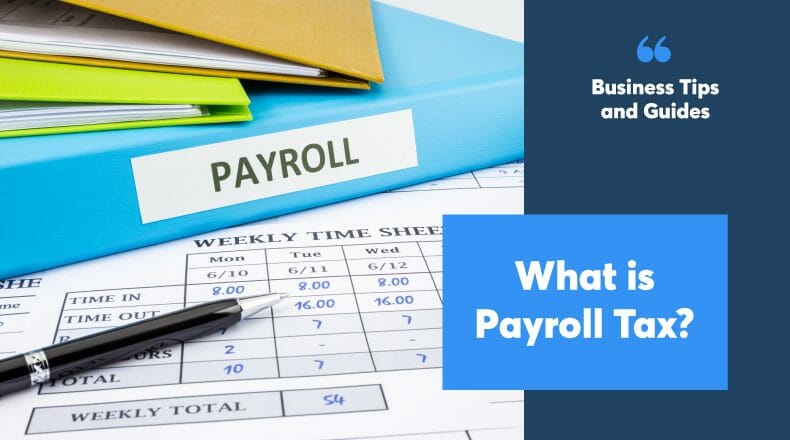When it comes to tax, its often easy for business owners to become overwhelmed by trying to keep up with thresholds, inclusions, exclusions, and reporting. This can be especially true with Payroll Tax, which is why we’ve put together a short guide to help you better understand what it is, and what you need to do.
What is payroll tax?
Payroll tax is a self-assessed, state and territory tax. Not all employers (or groups) have to pay payroll tax, and you only pay when your total Australian wage bill exceeds the threshold amount.
Is payroll tax the same for each state?
The short answer is no. Each state and territory have their own payroll tax legislation and related rulings, and despite aligning some key areas of payroll tax to ensure greater administrative consistency between states, many areas continue to differ at both the state and territory level.
Common payroll tax challenges
While calculating payroll tax can be difficult, often resulting in underpayments, fines, and penalties, lots of companies are also unaware that they qualify for government relief, concessions and incentives that could save them thousands.
Some of the common challenges that we see time and again for businesses when it comes to payroll tax include:
- Understanding which entities are grouped for payroll tax and payroll threshold purposes.
- Determining which contractors to include (common law employees) for payroll tax.
- Calculating wages per state for employees working in multiple states per month.
- Applying the correct motor vehicle and accommodation allowance exemption rates.
- Declaring employee share and option schemes per month.
- Applying specific exemptions correctly per state.
What are the thresholds and rates?
Generally, if you are an employer paying wages in Australia, and your taxable wages exceed the applicable monthly payroll tax threshold set by your jurisdiction (though based on total Australian wages), then you must register with the revenue office in that state or territory. This must be done even where you think the annual threshold may not be exceeded.
Also, it’s worth noting that employers who are members of a group should be mindful that one threshold applies to the whole group, rather than to each member.
Current thresholds by state are listed below:
| State | Payroll Tax Threshold PA | Rate |
|---|---|---|
| NSW | $1,200,000 | 4.85% |
| VIC | $650,000 | 4.85% |
| QLD | $1,300,000 | 4.75% |
| SA | $1,500,000 | 0% – 4.95% |
| ACT | $2,000,000 | 6.85% |
| TAS | $1,250,000 | 4.00% |
| NT | $1,500,000 | 5.50% |
| WA | $1,000,000 | 5.50% |
*Important notes:
- Victoria: Regional Victorian employers only have to pay 2.02%
- Queensland: Where taxable wages amount to $6.5 million or less; or 4.95%: where taxable wages amount to more than $6.5 million. Regional Queensland employers are entitled to a 1% discount on the payroll tax rate until 30 June 2023.
- South Australia: 0% – 4.95% variable for wages up to $1.7 million; or 4.95% for wages above $1.7 million.
- Tasmania: 4%: where taxable wages amount to more than $1.25 million but less than $2 million; or 6.1% where taxable wages amount to more than $2 million.
- Western Australia: 5.5%: taxable wages up to $100 million; 6%: where taxable wages amount to more than $100 million but less than $1.5 billion; or 6.5%: where taxable wages amount to more than $1.5 billion.
Wages that should be included for payroll tax purposes
- Wages, remuneration, salaries, and allowances including commissions and bonuses.
- Employer (pre-tax) super contributions: super guarantee payments, salary sacrifice, the value of non-monetary contributions (from 1 July 2007) and super contributions to defined benefit funds Fringe benefits within the meaning of the Fringe Benefits Tax Assessment Act 1986 (Cth).
- The value of shares and options granted to employees, directors, former directors, and some contractors.
- Payments to some contractors.
- Payments by employment agencies arising from employment agency contracts.
- Remuneration paid by a company to directors.
- Employment termination payments and accrued leave.
Wages that are exempt
- Caregiver leave.
- Commonwealth paid parental leave scheme.
Contributions to redundancy benefit schemes.
Wages paid to employees, absent from work to volunteer as firefighters or who respond to other emergencies. - Wages paid to a person while on military leave as a member of the Defence Forces.
- Bona fide redundancy or early retirement payments.
- Wages paid from non-profit group training organisations.
How often you need to pay
When it comes to payroll tax most states require you to lodge and pay by the 7th of each following month (including nil returns). However, some states across the country allow quarterly half yearly or annual lodgement based on certain criteria. See below for a state by state breakdown.
NSW
- Monthly by the 7th day.
VIC
- Monthly by the 7th.
SA
- Monthly by the 21st
ACT
- Monthly by the 21st.
TAS
- Monthly by the 7th
NT
- Monthly by the 21st.
QLD
- Monthly or half-yearly.
- Monthly by the 7th.
- Half-yearly by the 7th day after period end.
WA
- Monthly, quarterly, or annually.
- Monthly by the 7th.
- June return is due by 21 July.
- Quarterly by the 7th day after period end.
In addition to the above, below are due dates for annual payroll tax reconciliation:
- July 21 each year – VIC / QLD / WA / NT / TAS /ACT
- July 28 each year – NSW / SA
Payroll tax concessions and tax relief information
Visit the below resource links by state to find out more about concessions and tax relief that your business may be eligible for.
NSW
- COVID-19 and payroll tax
- General information: State Revenue Office of NSW
VIC
- Coronavirus payroll tax relief
- Payroll tax and regional employers
- General information: State Revenue Office of Victoria
QLD
- Covid-19 payroll tax relief
- Payroll tax discount for regional businesses
- General information: Queensland State Revenue Office
SA
- Covid-19 relief
- General information: South Australia State Revenue Office
ACT
- Covid-19 assistance
- General information: ACT Revenue Office
TAS
- COVID-19 support schemes
- General information: State Revenue Office of Tasmania
NT
- Covid-19 and payroll tax relief
- General information: NT Department of Treasury and Finance
WA
- COVID-19: Payroll tax employer guide
- General information: WA Department of Finance
Recap
Follow the below checklist to help you ensure you effectively manage your payroll tax obligations:
- Register for payroll tax in the relevant states and territories.
- If you’re part of a group, determine which company is the Designated Group Employer.
- Understand what wage items are included for payroll tax.
- Lodge and pay monthly payroll tax.
- Perform and lodge your annual reconciliation.
Looking to manage your payroll tax easily and accurately?
The team at POP Business can help. Not only can we manage your payroll tax, but we can also help optimise your tax position, saving you time and money.
Call us today on 1300 180 630 or send us a message and let us show you how our Cloud-based tax accountant specialists can take your business to the next level.



